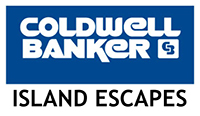3 Ways To Avoid Mortgage Insurance
 When you are buying a home, you may run into a number of hurdles to complete the purchase. One of the items that you may be asked to purchase is called private mortgage insurance, often shortened to PMI. This is a unique insurance policy that your lender, such as the credit union or bank, may ask you to buy in order to protect themselves. In this insurance policy, the bank protects themselves against losing money if you end up defaulting on your loan.
When you are buying a home, you may run into a number of hurdles to complete the purchase. One of the items that you may be asked to purchase is called private mortgage insurance, often shortened to PMI. This is a unique insurance policy that your lender, such as the credit union or bank, may ask you to buy in order to protect themselves. In this insurance policy, the bank protects themselves against losing money if you end up defaulting on your loan.
Unfortunately, if you are asked to purchase PMI, this will increase your monthly mortgage payment. Therefore, most people try to avoid it. Fortunately, there are a few ways to do this.
Increase the Size of Your Down Payment
Typically, the lender will ask you to purchase PMI if your loan to value ratio is off. In most cases, the lender will ask you to buy PMI if you put down less than 20 percent. It is important to remember that this is still handled on an individual case-by-case basis and each lender handles this differently.
Invest in a Piggyback Mortgage
Another option to avoid PMI is to invest in something called a piggyback mortgage. In this case, you are splitting your mortgage into two policies. For example, if you put down 10 percent, you would need to take out a mortgage for the other 90 percent.
When you take out a piggyback mortgage, you split this 90 percent loan into one mortgage for 80 percent and the other for 10 percent. The drawback of this policy is that the second loan might have a higher interest rate than the first. This can help you avoid having to take out PMI.
Try Building the PMI Into the Loan
Finally, the last option is to roll them into the cost of the loan. In this case, the lender avoids asking you to purchase PMI and instead charges you a little bit more money for the loan. You won’t have a section on your bill for “private mortgage insurance” but you will have a slightly higher monthly payment anyways. Remember that you can refinance to a lower rate later, saving some money; however, it might be harder to eliminate PMI.
Avoiding Mortgage Insurance
These are a few ways that you can avoid purchasing PMI. This will help you keep your monthly payments low. As always, speak with your trusted mortgage professional for personal advice on your specific situation.




